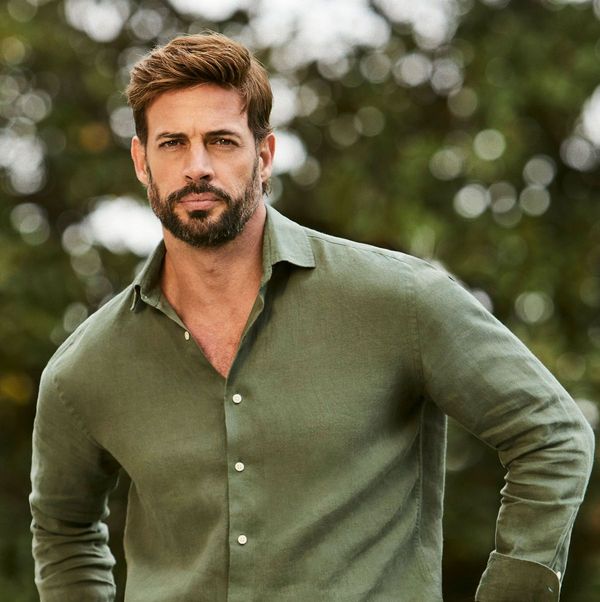
When Prince Andrew appeared on Newsnight in November 2019, he dispelled any lingering doubt in the notion that truth is stranger than fiction.
If you can recall – and let’s be honest, who can forget? – the Duke of York made a series of startling claims when called on to address his close ties with Jeffrey Epstein, among them that retaining a relationship with the convicted child sex offender was “the right thing to do”. There was also the alibi that hinged on a children’s party at Pizza Express in Woking and his lack of ability, at the time, to sweat.
If you were to float any of this in a TV writers’ room, it would be rightly rejected for disrespecting viewers’ credulity, if not their intelligence. But reality is testing the limits of our disbelief – and one way we seem to be trying to retain our grasp on it is by processing it into entertainment.
Scoop, a feature-length film about that Newsnight interview, starring Gillian Anderson as the BBC’s Emily Maitlis, Billie Piper as the producer Sam McAlister and Rufus Sewell as the disgraced prince – lands on Netflix this week after months of publicity. Production began in February 2023, just three-and-a-bit years after the interview was broadcast; McAlister’s memoir – from which the film is adapted, adding another layer of perspective – was published in summer 2022. The director, Philip Martin, has said Scoop explores “how we judge what’s true” in “a world of speculation and varying recollections”. But there is a danger that the “fictionalised dramatisation”, produced within clear memory of the history it is depicting, will further confuse the narrative by cementing its own version of events.
A scripted retrospective seems premature. But it’s consistent with a media landscape that is becoming increasingly comfortable with metabolising fact as fiction. The first wave of coronavirus in early 2020 was dramatised two and a half years later in the Sky miniseries This England, with Kenneth Branagh playing Boris Johnson in a wayward wig. Meanwhile, the “Wagatha Christie” libel case became a Channel 4 courtroom drama only five months after the trial concluded.
It is easy to see why these true(ish)-to-life adaptations are so popular: they tap into a similar drive as reboots and franchises, presenting a fresh angle on a familiar story. For commissioning editors, repurposing recent events is less risky than trying to sell audiences on something entirely original. For actors, playing a controversial public figure offers prestige and a challenge: Anderson’s transformation into Maitlis has been met with similar anticipation as there was for her turn as Margaret Thatcher in The Crown.
But when news and entertainment become so entwined, do we risk losing sight of these events’ real-world impact? In 2019, Brexit: The Uncivil War – a black comedy dramatising the 2016 campaign to leave the European Union, starring Benedict Cumberbatch as Dominic Cummings – was praised by reviewers as “Brexit without the boring bits” (to quote the Times). Five years later, we’re still weathering the impact of those “boring bits” that would have spoiled the show, and Brexit’s wide-reaching toll on the economy.
In that time, these scripted treatments of the truth have proliferated in a multimillion-dollar arms race between platforms for intellectual property. Consider the volume of content produced on Elizabeth Holmes and the Theranos scandal: a narrative ABC News podcast, an Emmy-nominated 20/20 episode and a fictionalised series starring Amanda Seyfried. MGM acquired the rights to a film about the GameStop saga of January 2021 the following month; Netflix still got in first with a docuseries.
Audiences are drawn to these productions as a means of understanding the headlines, in a way that feels less like “work”. But the upshot is that the line between news and entertainment is increasingly permeable – worsened by entire industries treating fact and fiction as interchangeable, and priming audiences to do the same. Inventing Anna, Shonda Rhimes’s adaptation of the viral New York magazine article about the socialite-scam artist Anna Sorokin, trumpeted the ambiguity, claiming to be both “completely true” but also “totally made up”. Now one of Sorokin’s marks, unhappy with her portrayal in the series and declaring it a “dangerous distortion”, is suing Netflix for defamation. Meanwhile, the real-life Sorokin is out of prison – and a bona fide celebrity, capitalising on her infamy with ventures into art, fashion and media.
It’s proof of the potential of these semi-factual (or quasi-fictional) treatments to influence reality. ITV’s Mr Bates vs The Post Office was a triumphant example of their potential to put events back on the agenda and even right historic wrongs, but it is among the minority. More of these dramatised adaptations focus on people in power, often (directly or indirectly) with a sympathetic lens.
In 2022, Judi Dench successfully campaigned for Netflix to make explicit that The Crown was only based on historical events, arguing that imagining conversations behind closed doors was “cruelly unjust” to the royal family. But arguably the series, seen by millions, has done more to make the royals real to the taxpaying public than their sporadic and carefully managed public appearances. Likewise, for people with only a glancing interest in politics and no direct experience of Thatcher or Cummings, they might reasonably picture Anderson and Cumberbatch.
Branagh defended This England by saying that it “might allow people to process” the pandemic. In fact, the series was primarily concerned with Johnson, making sympathetic leaps into the prime minister’s psyche. It did try to show the consequences of the government’s bungled Covid-19 response, with now-familiar scenes of embattled nurses and grieving families. But against Branagh’s larger than life performance (“Shakespearean”, as he put it), they could not help but seem perfunctory – the B-plot.
In an often chaotic and confusing world, of course we’d seek to make sense of it by refracting it through a screen with a zingy script and an all-star cast. Thetruth, dramatised, may even be preferable: not even a threat as invisible and formless as a pandemic can’t be reined in and given structure with a beginning, a middle and an end. But by treating recent history as narrative, we might be prematurely marking it “seen”. Now more than ever, as we settle in for some prestige TV, it pays to think: how is the picture being distorted?
Elle Hunt is a freelance journalist and writer
Do you have an opinion on the issues raised in this article? If you would like to submit a response of up to 300 words by email to be considered for publication in our letters section, please click here.







